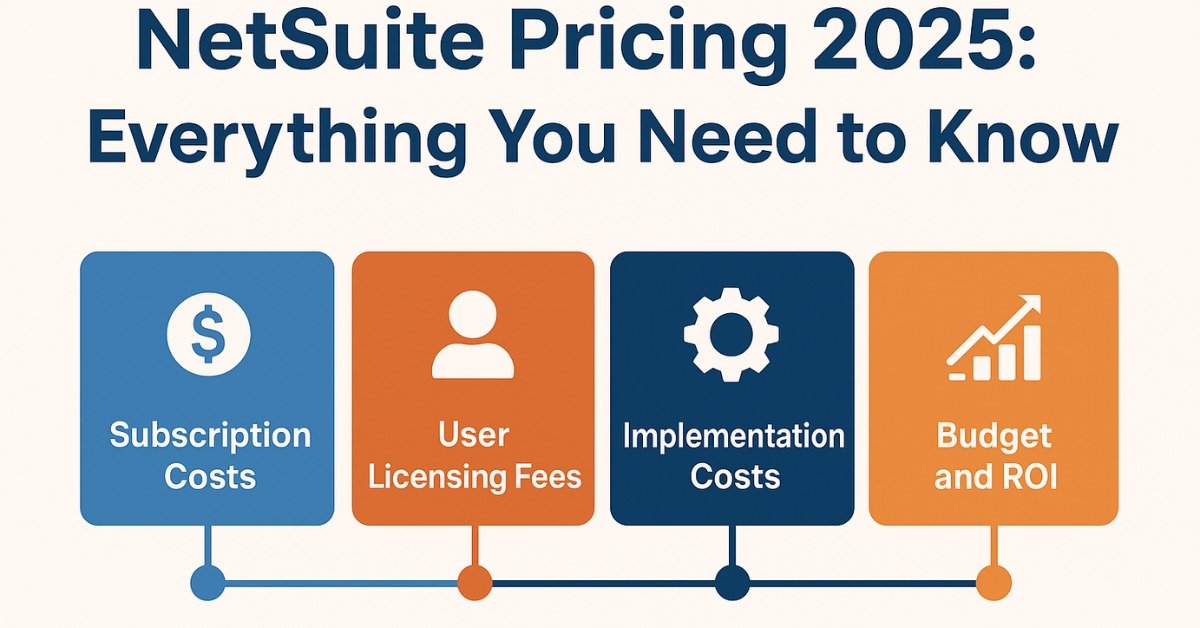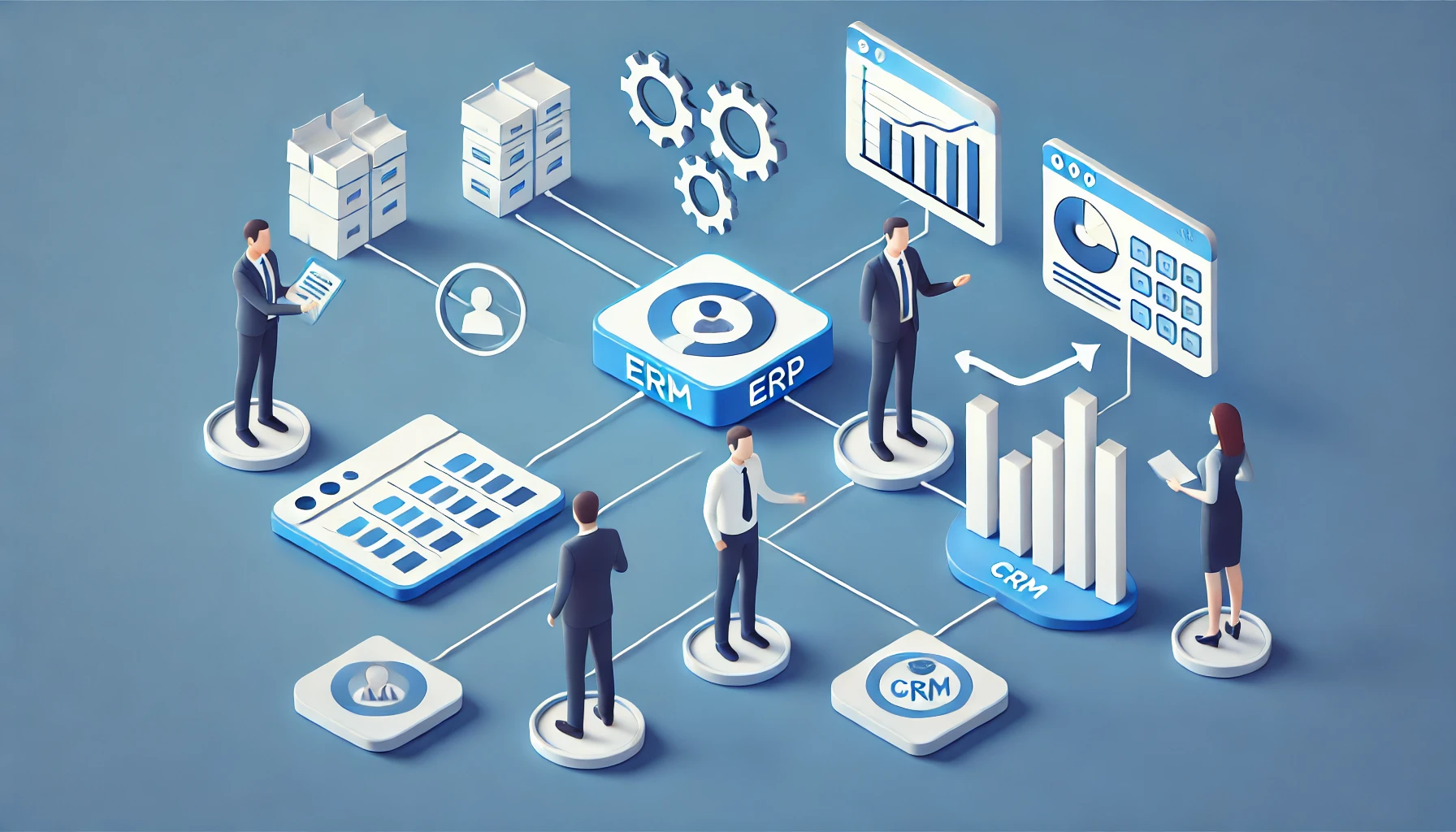Table of Contents
ToggleWhat is CRM?
Customer Relationship Management (CRM) is a strategic approach and technology-driven solution that helps businesses manage their interactions and relationships with current and potential customers. The primary goal of CRM is to improve overall customer satisfaction, enhance customer loyalty, and drive business growth.
Through acquisition and development, software vendors began to combine all of these disciplines under one umbrella, called customer relationship management. Sales performance management and sales incentive compensation are also included in some CRM systems, but they’re often sold separately because of their complexity.

What is ERP?
Enterprise Resource Planning (ERP) is a comprehensive business management software solution that integrates and streamlines various core business processes within an organization. The primary objective of ERP is to enhance efficiency, optimize resource utilization, and provide real-time insights for better decision-making.
ERP serves as a shared database to all the parts of an organization. At its core, this means finances, including the general ledger (GL), accounts payable, accounts receivable, payroll and financial reporting.
But ERP also extends to inventory management, order management, supply chain management and data related to services organizations. ERP touches on procurement, production, distribution and fulfillment as well.Some ERP systems also offer Human Resources
Management Systems (HRMS), CRM and ecommerce.

CRM VS ERP
Scope and Focus:
CRM (Customer Relationship Management): Primarily focuses on managing interactions and relationships with customers. It helps organizations streamline sales processes, manage customer data, and improve customer service.
CRM systems are used by organizations of all sizes, with a primary focus on customer-facing activities.
ERP (Enterprise Resource Planning): Encompasses a broader range of business processes, including finance, human resources, supply chain, manufacturing, and more. ERP systems integrate various business functions into a unified platform, facilitating seamless information flow across the organization.
ERP systems are generally used by large and complex organizations with multiple business units and locations.
Functionality:
CRM: Provides tools for managing customer interactions, sales leads, customer service, and marketing campaigns. It often includes features for tracking customer preferences, managing contacts, and analyzing customer data to enhance relationships.
Here are some key functionalities of CRM:
- Centralized Customer Database: CRM systems store and organize customer information in a centralized database. This includes contact details, communication history, purchase history, preferences, and any other relevant data.
- Contact Management: CRM enables businesses to manage and track their interactions with customers. It helps in keeping detailed records of customer communications, such as emails, calls, meetings, and other touchpoints.
- Sales Automation: CRM systems often include sales automation tools to streamline the sales process. This may involve automating tasks like lead generation, opportunity tracking, quote generation, and order processing.
- Marketing Automation: CRM can automate marketing processes, allowing businesses to create and manage marketing campaigns, track leads, and analyse campaign effectiveness. This helps in targeting and engaging with the right audience.
- Customer Support and Service: CRM systems assist in managing customer support and service by tracking customer issues, providing a knowledge base, and ensuring timely resolution of problems. This contributes to enhanced customer satisfaction.
- Analytics and Reporting: CRM systems offer reporting and analytics tools to help businesses gain insights into customer behaviour, preferences, and trends. This data-driven approach aids in making informed business decisions.
- Task and Calendar Management: CRM systems often come with task and calendar management features, helping teams schedule activities, set reminders, and stay organized. This ensures that important tasks and follow-ups are not overlooked.
- Integration with Other Systems: CRM systems can integrate with other business applications such as email, social media, e-commerce platforms, and ERP systems. This integration streamlines workflows and ensures a cohesive customer experience.
- Mobile Access: Many CRM solutions provide mobile access, allowing users to manage customer relationships on the go. This is particularly valuable for sales representatives and field service personnel.
- Customer Segmentation and Targeting: CRM systems assist in segmenting customers based on various criteria, allowing businesses to tailor their marketing and communication strategies to specific groups. This personalization enhances customer engagement.
ERP: Covers a wide range of business functions, such as accounting, inventory management, procurement, production planning, human resources, and more. ERP systems aim to integrate and optimize these processes for increased efficiency.
Here are some key functionalities of ERP systems:
- Integrated Business Processes: ERP systems integrate various business processes such as finance, human resources, supply chain management, manufacturing, procurement, and more. This integration eliminates data silos and promotes a seamless flow of information across departments.
- Centralized Database: ERP systems maintain a centralized database that serves as a single source of truth for the entire organization. This ensures data consistency and accuracy across different functions.
- Automated Workflows: ERP automates routine and repetitive tasks, reducing manual effort and minimizing the risk of errors. Automated workflows help in improving operational efficiency and consistency.
- Financial Management: ERP includes modules for financial management, including accounting, budgeting, financial reporting, and compliance. It allows organizations to manage their financial processes in a unified manner.
- Supply Chain Management: ERP systems help organizations optimize their supply chain by providing tools for inventory management, order processing, demand forecasting, and supplier relationship management. This results in improved coordination and reduced lead times.
- Human Resources Management: ERP includes HR modules for managing employee data, payroll, benefits administration, recruitment, training, and performance evaluation. It helps organizations streamline HR processes and enhance workforce management.
- Customer Relationship Management (CRM): Some ERP systems include CRM functionalities to manage customer interactions, sales, marketing, and service processes. This integration ensures that customer-related data is accessible across the organization.
- Business Intelligence and Reporting: ERP systems offer reporting and analytics tools that allow organizations to gain insights into their performance. Users can generate customized reports, analyze trends, and make data-driven decisions.
- Compliance and Risk Management: ERP systems often include features to help organizations comply with industry regulations and standards. This is crucial for managing risks and maintaining legal and regulatory compliance.
- Real-time Data Access: ERP provides real-time visibility into business operations. This allows decision-makers to access up-to-date information, facilitating quicker and more informed decision-making.
- Collaboration and Communication: ERP systems often include collaboration tools to facilitate communication and information sharing among employees. This enhances teamwork and ensures that everyone is on the same page.
- Scalability: ERP systems are designed to be scalable, allowing organizations to adapt the system to their changing needs as they grow and evolve.
Data Focus:
CRM: The focus on data in CRM is essential for capturing, managing, and leveraging information about customers to enhance relationships and drive business success. Centers around customer data, focusing on managing and utilizing information related to customer interactions, preferences, and transactions.
key data-focused aspects in CRM: Customer Data Capture, Data Quality and Accuracy, Data Integration , Data Security , Data Analytics and Insights , Data Accessibility , Data Compliance , Data Migration and Integration etc.
ERP: Manages various types of organizational data, including financial data, inventory levels, production schedules, employee information, and more. It aims to provide a holistic view of the entire business.
The effective management and utilization of data within an ERP system contribute to improved efficiency, decision-making, and overall business performance.
key aspects of data focus in ERP: Unified Data Repository, Master Data Management (MDM) , Real-time Data Access , Data Security and Compliance , Integration with External Systems , Data Quality and Cleansing, Data Analytics and Reporting , Forecasting and Planning , Data Migration , Scalability , Data Backups and Recovery etc.
User Base:
The user base for Customer Relationship Management (CRM) and Enterprise Resource Planning (ERP) systems often differs based on the nature of the software and the primary functions they serve within an organization.
CRM: Mainly used by sales, marketing, and customer service teams to improve customer interactions and relationships.
User Base in CRM: Sales and Marketing Teams , Customer Service Representatives , Management and Executives , Business Development Professionals , Customer Support Teams etc.
ERP: Utilized by a broader range of departments, including finance, human resources, manufacturing, and supply chain management.
User Base in ERP : Finance and Accounting Teams , Supply Chain and Logistics Professionals , Human Resources Personnel , Production and Manufacturing Teams , Procurement and Purchasing Professionals , Management and Decision Makers , IT Administrators etc
CRM emphasizes customer-centric activities, while ERP focuses on integrating and managing a wide range of business processes across the entire organization. In some cases, an organization may choose to integrate CRM and ERP systems to create a more comprehensive view of customer interactions and business operations.
Integration:
Integration in both Customer Relationship Management (CRM) and Enterprise Resource Planning (ERP) systems is crucial for achieving a seamless flow of information across an organization. However, the focus and nature of integration may differ based on the specific requirements and functionalities of each system.
CRM: Can be integrated with other systems, including ERP, to ensure a seamless flow of information between customer-centric and internal operational processes.
Example: Data Integration , Marketing Automation Integration , Customer Support Integration , E-commerce Integration , Social Media Integration , Integration with ERP .
ERP: Often includes modules that cover CRM functionalities, but organizations may also choose to integrate standalone CRM systems for more specialized customer management.
Example: Supply Chain Integration, Financial Integration , Human Resources Integration , Manufacturing Integration , Customer Relationship Management (CRM) Integration , E-commerce Integration , Integration with Business Intelligence (BI) Tools , Data Warehousing Integration.
Both CRM and ERP systems benefit from integration with various tools and systems to enhance their functionalities and provide a comprehensive solution for businesses. The specific integration requirements depend on the organization’s needs and the functionalities of the CRM and ERP systems in use.
Time Horizon:
The time horizon in both Customer Relationship Management (CRM) and Enterprise Resource Planning (ERP) systems relates to the planning and management of activities over a specific period. However, the focus and scope of the time horizon can differ based on the nature of these systems and the functions they serve within an organization.
CRM: Focuses on short-term goals related to customer interactions, sales, and marketing efforts.
ERP: Typically designed for long-term planning and optimization of overall business processes.
While CRM systems primarily focus on short to medium-term activities related to customer interactions and sales, ERP systems have a broader and longer time horizon, addressing core business processes and strategic planning over an extended period. Both systems are essential for the overall management and success of an organization, each catering to specific timeframes and functions within the business landscape.



